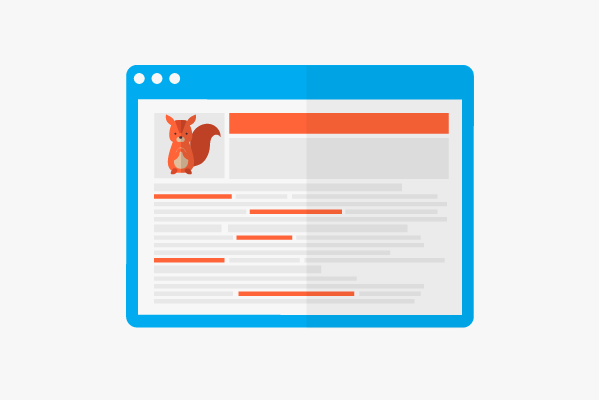Keyword Stuffing
Keyword stuffing is an SEO technique where a site is loaded with keywords in an effort to improve a page's ranking in the search results. Keywords are often repeated multiple times in the metadata, text or link texts of a page. Keyword stuffing results in a significantly higher keyword density, which is seen as spam search engines. Keyword stuffing is therefore considered a prohibited SEO technique.
Background
In the early days of search engines, the 1990s, their work primarily consisted of sifting through a fixed index of websites for specific keywords and combinations. So while the search engines were still relatively simple, (today this would be somewhat equivalent to the level of search functions available on websites) the website, which had a strong linking structure and included the searched keyword as often as possible, was favored. Thus, the door for spam SEO was wide open and high rankings were able to be achieved with relatively simple methods. Keywords were consequently “stuffed” wherever possible, including in the metadata and the source code.
Once the search engines algorithms had been repeatedly refined and once important metrics such as keyword density became secondary factors (only as a warning that the keyword density must not be too high and not go over the optimization goal), keyword stuffing finally went out of fashion and is now considered a spam measure which does not even lead to short term success.
Functionality
In keyword stuffing it is assumed that the relevance of a site for a specific keyword or keyword combination increases if that exact keyword or combination is particularly frequently used on a web page. Different variations of this method abound. Keywords are “stuffed,” wherever possible:
- Meta title: In keyword stuffing, the keyword is sometimes repeated several times in the page title.
- Meta description: Again, the keyword shows up several times.
- Content: In the texts on the website, the keyword is used practically in every sentence. The result is unnaturally sounding copy, and depending on the keyword, it often results in nonsensical combinations.
- Source code: Black Hat SEOs got to work here as well and filled the non-visible part of the site with relevant keywords in order to give search engine robots the necessary fodder. Font size “zero” for text or white text on a white background are also considered keyword stuffing, but are now reliably unmasked by search engine robots.
Google Recommendation
From Google’s point of view, one should avoid keyword stuffing (filling up one’s pages with keywords indiscriminately) because it can be extremely detrimental to the ranking of the page. The user experience may deteriorate significantly since the text is no longer readable due to the frequent use of the same keywords and becomes irrelevant to the user. Google recommends creating valuable content for website users and not to focus on tricks such as hidden text or other unauthorized techniques. Since the Penguin update, Google is actively working to combat this technique and tries to identify and penalize pages recognized by the algorithm.
Benefits for SEO
Keyword Stuffing has no positive SEO effect. To do on-page optimization today, webmasters and SEOs should pay more attention to the semantic context of content on the website and focus less on keywords. Because of the constantly improving search functions including the Google search (Hummingbird update to name one), and since comparisons are also possible with the search bar, techniques such as keyword stuffing can be compared to athletes who dope for enhanced performance right before a competition and then act surprised when they are discovered.
That keyword stuffing does not work anymore has a positive effect for the SEO industry because it brings it out of the “sleazy corner” and makes it clear once again that when it comes to search engine optimization it is not about dirty tricks and scams, but real skill, experience and knowledge.
Google is able to distinguish unique content from copied content, thin content, and web spam better and better. The gibberish score helps with that. Google even got that patented in 2009.
Web Links

